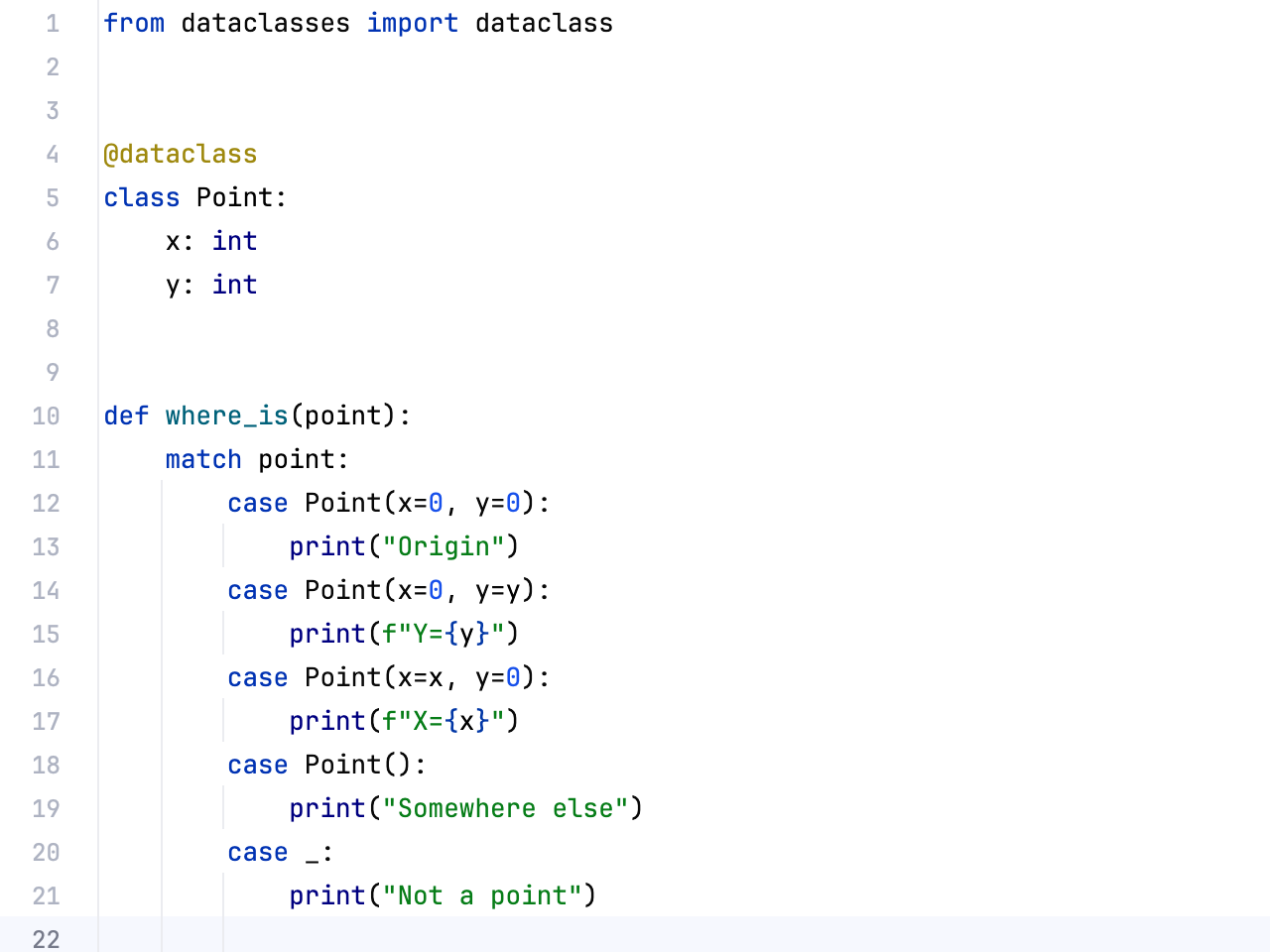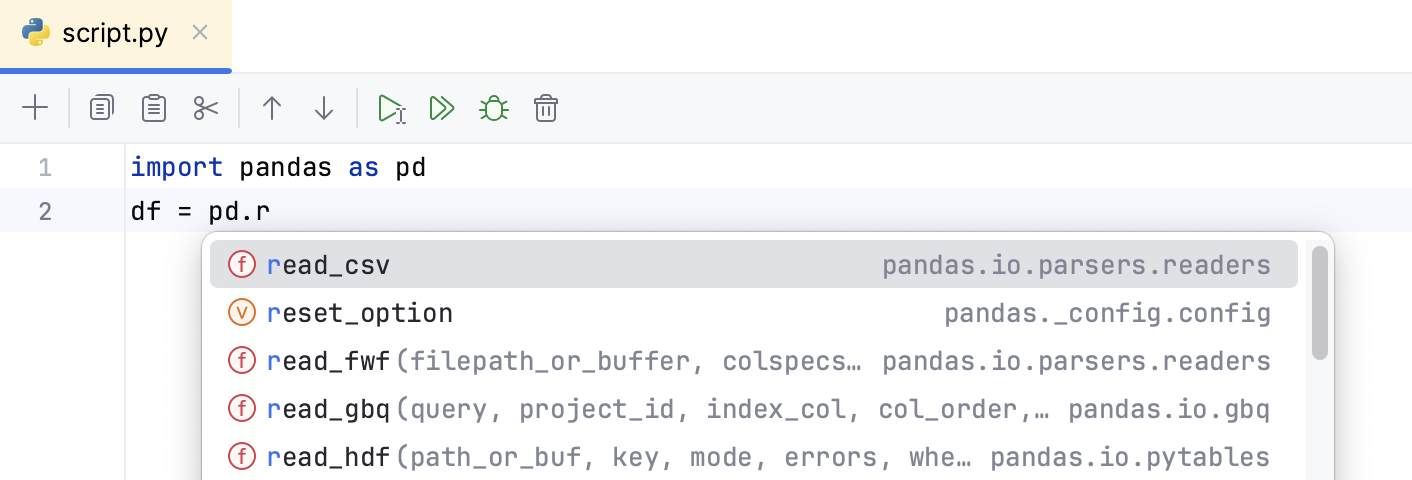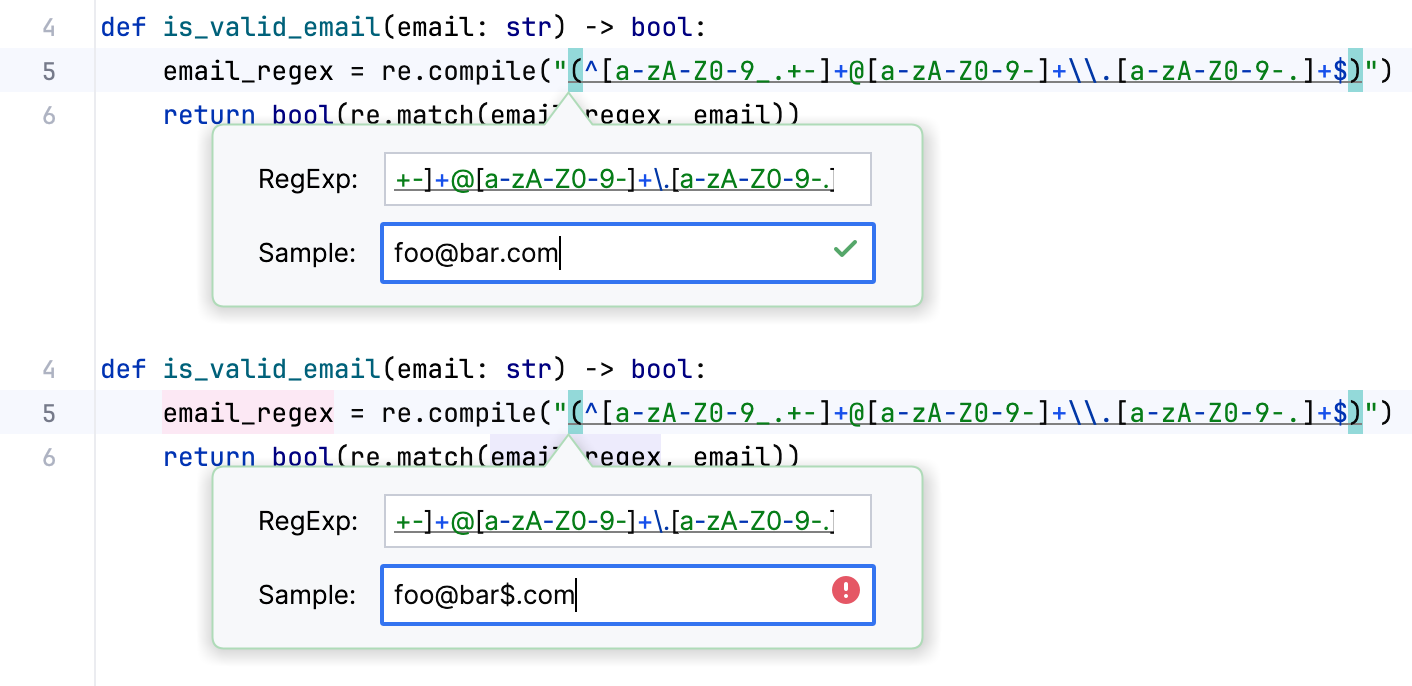Python code insight
Code insight is a common name used for Code completion, intention actions, type inference, and other techniques related to the code analysis in DataSpell.
The DataSpell editor respects highlighting of the keywords, comments, parameters, , and other elements.
Code snippet{...}
The particular highlighting colors are defined in the Editor | Color Scheme page of the Settings dialog.
With new Python versions, DataSpell supports more specific types and language structures,for example, Python 3.10 specific pattern matching:

Code snippet{...}
DataSpell supports auto-completion.

As DataSpell indexes your whole project on each startup, it allows you to autocomplete any existing entity wherever it is defined.
DataSpell allows you to navigate to a location where a particular named code reference has been first declared. Place the caret at the symbol in the editor and press . Alternatively, use .

If your code contains a regular expression, there is an intention action to check it: place the caret at the regular expression and press . The RegExp checker shows up, where you can type the string and check if it matches the regular expression:

Code snippet{...}
For more information, refer to this section.
With DataSpell, you don’t need to surf the web every time you stumble across some alias, or search your whole application for a method declaration you can’t remember. Place the caret at a keyword you want to look up, and press :

Code snippet{...}